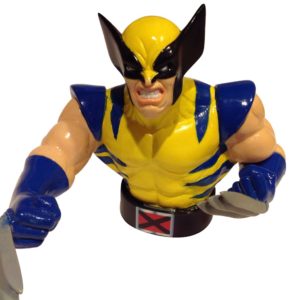By Claudia Infante, Projects Coordinator, New Mexico Manufacturing Extension Partnership
It started three years ago with a 3-D printer and a lifelong passion for pinball. Former Intel engineer Tim Mezel now runs a small company that makes “mods,” 3-D printed plastic after-market parts installed in pinball machines to make the games more challenging or personalized.
There’s a niche market for these products, and Mezel Mods caters to it.
In 2015, Tim Mezel and his wife, Kristin, moved production from their home to a 1,500-square-foot manufacturing facility in Rio Rancho, where they and two employees design and fabricate novel add-ons and replacement parts for tricked-out pinball machines.
Through its website, the company sells about 50 of its own products and a handful of products made by other “modders.” Mezel creations include a dragon pyramid inspired by Game of Thrones and shooter rods that resemble movie characters. They make interactive lighting for the vertical backboard, under-cabinet lighting that illuminates the player’s feet and LED play-board structures.
Just as the couple recognized that growth required moving to a true manufacturing space, they acknowledged that streamlined processes would improve workflow, product quality and profitability. For help with that, they contacted New Mexico MEP, a nonprofit organization that helps businesses increase profitability and competitiveness through lean-manufacturing concepts.
Getting Organized
MEP Innovation Director Scott Bryant began his intervention by walking through the manufacturing process and discussing problems identified during value stream mapping; this exercise identifies bottlenecks and time wasters in production. That analysis concluded, among other things, that Mezel Mods needed to use work areas more effectively, store inventory closer to the point of use, eliminate defects and fulfill orders more efficiently.
Bryant introduced visual techniques to address problem areas. For example, storage bins and containers that move parts through production were color-coded to improve the intake and fulfillment of orders. Workstations were redesigned, and tools were stored where used. Visual instructions were posted at the quality check station, a heat sealer was added for bagging assembled items, tool holders were installed and the display of inventory-order-fulfillment labels was improved. The research and development area was reorganized and moved away from the production area.
Measurable Gains
A year later, shortened lead times and production efficiencies are improving cash flow, inventory shortages have been reduced by 15 percent, and subassembly production steps were halved. The company adopted a 3-D printer pricing strategy based on per minute of production, which improved profitability.
With clearer work instructions and standardized workstations, it’s easier for Mezel Mods to incorporate new products, which represented 21 percent of the 2016 product line. That allows Kristin Browning-Mezel to devote more resources to R&D, design, light manufacturing, expanding the company’s market share and building its customer base.
“New Mexico MEP engaged in our challenges deeply,” she said. “MEP got into the trenches with us to do the hands-on application of concepts to improve efficiency. We made critical improvements that we could never have made on our own. The value [of working with MEP] is truly beyond measure to a small manufacturer.”
To see the mods created by Mezel Mods, visit www.mezelmods.com. MEP can be reached at www.newmexicomep.org.
Download 493_Pinball Parts Maker Gets Boost From Manufacturing Makeover PDF

